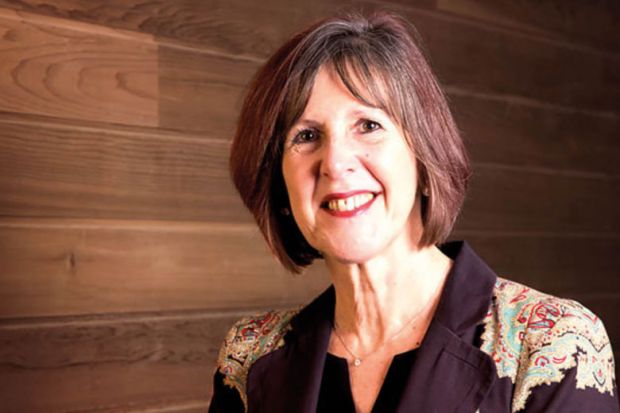Many Russell Group universities appear to have reined in increases in vice-chancellors’ pay in the wake of widespread criticism of excessive executive remuneration.
Accounts published by 22 of the 24 members of the mission group of research-intensive universities show that institutional heads’ average pay, including benefits, stood at £348,090 in 2018-19.
This is almost identical to the overall 2017-18 figure of £348,153. This sum includes salary and any bonus payments, as well as benefits such as accommodation and payments in lieu of pension contributions.
If pension contributions are included in the figures, overall remuneration stood at £356,450 last year, compared with £352,705 the year before, an increase of 1.1 per cent.
Rank-and-file university staff were awarded a minimum pay rise of 2 per cent in 2018-19.
However, the Russell Group figures do not include the remuneration of Sir David Eastwood, vice-chancellor of the University of Birmingham, as the institution had not published its financial statements at the time of publication. Sir David, who is traditionally among the highest-paid vice-chancellors, earned £444,000 in 2017-18. Cardiff University is also yet to release its figures.
Nevertheless, there were signs that remuneration committees have been taking greater heed of criticism over high salaries in the UK’s leading institutions. Several leaders did not receive any pay rise or additional benefits in 2018-19, such as Sir Alan Langlands, vice-chancellor of the University of Leeds, whose salary was unchanged at £281,000.
Others took home less than they did the previous year: at the University of Manchester, Dame Nancy Rothwell’s base salary remained the same but her overall salary and benefits package shrank by 2.3 per cent to £261,399.
At King’s College London, Ed Byrne’s overall remuneration dropped by 2.2 per cent to £350,000.
However, the salary and benefits package for Dame Janet Beer, vice-chancellor of the University of Liverpool, grew by £46,500 to £410,000 – a 12.8 per cent rise. This included £57,300 in performance-related pay in 2018-19, compared with £27,500 the year before.
A Liverpool spokesman said the vice-chancellor’s salary was “reviewed by the university’s remuneration committee to ensure it remains commensurate with the scope and scale of responsibilities and taking into account sector guidance and comparative salaries in higher education”.
“The vice-chancellor’s remuneration is particularly target-driven; and in agreeing performance-related pay, which varies annually, the committee takes factors such as student survey results, awards, rankings and student outcomes into account,” he said.
The highest earner among the institutions to report so far is Stephen Toope, vice-chancellor of the University of Cambridge, who received salary and benefits of £458,000 in 2018-19, or £475,000 including pension. A university spokesman said Professor Toope had “asked not to receive any increase in pay for 2018-19 other than the national pay award given to all employees”.
The figures emerged as University and College Union members at most Russell Group institutions remained locked in a dispute with employers over pay and pensions. An eight-day walkout last month has been followed by action short of a strike, with more strikes likely in the new year. The pay offer for rank-and-file staff for this academic year is 1.8 per cent.
Across the sector as a whole, the highest remuneration reported so far is that of François Ortalo-Magné, dean of London Business School, who received a package of £529,000, or £609,000 including pension contributions.
anna.mckie@timeshighereducation.com
Highest-paid Russell Group vice-chancellors, 2018-19
|
University |
Vice-chancellor |
Salary plus benefits |
With pension |
|
Stephen Toope |
£458,000 |
£475,000 |
|
|
Alice Gast |
£428,600 |
£436,100 |
|
|
Dame Janet Beer |
£410,000 |
£410,000 |
|
|
Sir Steve Smith |
£407,000 |
£421,000 |
|
|
UCL |
Michael Arthur |
£398,000 |
£405,034 |
|
Peter Mathieson |
£385,000 |
£385,000 |
|
|
Hugh Brady |
£375,000 |
£382,000 |
|
|
Louise Richardson |
£372,000 |
£452,000 |
|
|
London School of Economics* |
Dame Minouche Shafik |
£371,000 |
£437,000 |
|
Chris Day |
£366,900 |
£373,600 |
|
|
*Excludes provision for housing. Source: accounts for 22 of 24 Russell Group members |
POSTSCRIPT:
Print headline: Big rise for Liverpool v-c as Russell Group shows pay restraint
Register to continue
Why register?
- Registration is free and only takes a moment
- Once registered, you can read 3 articles a month
- Sign up for our newsletter
Subscribe
Or subscribe for unlimited access to:
- Unlimited access to news, views, insights & reviews
- Digital editions
- Digital access to THE’s university and college rankings analysis
Already registered or a current subscriber? Login










